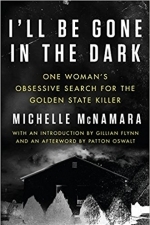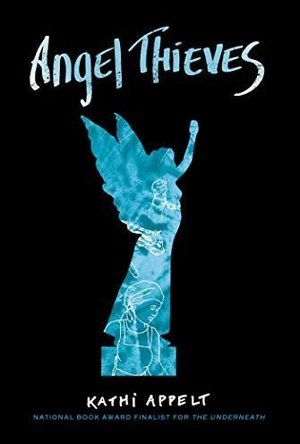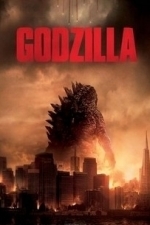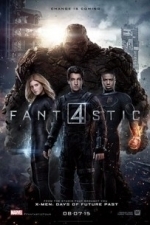
Lonely Planet Best of USA
Lonely Planet, Amy C. Balfour, Sandra Bao and Karla Zimmerman
Book
Lonely Planet: The world's leading travel guide publisher Lonely Planet's Best of USA is your...

I'll Be Gone in the Dark: One Woman's Obsessive Search for the Golden State Killer
Book
Introduction by Gillian Flynn Afterword by Patton Oswalt "This is a one sit-down read. That's how...
Red Devils Over the Yalu: A Chronicle of Soviet Aerial Operations in the Korean War 1950-53
Stuart Britton and Igor Seidov
Book
The Korean War (1950-1953) was the first - and only - full-scale air war in the jet age. It was in...
Heather Cranmer (2721 KP) rated Angel Thieves in Books
Sep 8, 2019
I very much enjoyed the plot of Angel Thieves and found myself immersed in the story from the very first page. It is told from different perspectives including humans, an ocelot, and a bayou which definitely made this book even more interesting! The narrative is told from 1845 through to present time. It all takes place in Houston, Texas. Every perspective is interwoven with each other. We learn about a teenage crush, a father and son duo who steal marble angel statues to make a living, an ocelot who was poached from her home and caught in a hurricane where she's left starving and unable to escape from her cage, a former slave who is trying to help her young daughters escape from being slaves themselves, a bayou who has seen it all, and some other points of view from others throughout Angel Thieves. I was constantly memorized by each chapter, and I was on pins and needles wondering what would happen next. It also helps that the author, Kathi Appelt, is such a fabulous writer who makes all her words come to life with her extraordinary talent! There weren't any major plot twists, but this isn't a book that needs to rely on plot twists to keep it interesting. The writing itself is strong enough to hold its own. There are no cliff hangers, but I would have liked to know a little more about Achsah and her children. There is some mention of them at the end, but I was heavily invested in Achsah's story where I really wanted to know more. However, this doesn't take away from the appeal of the book by no means. Because the prose is so beautifully written, the pacing flows very well. The chapters are mostly all short as well, so it's easy to read this book in one sitting. The world building was done fantastically, and it was obvious that Kathi Appelt had done her research when it came to the plot of her story. In fact, I even learned something when it came to Texas history! I'm also grateful that Kathi Appelt included an author's note at the end of Angel Thieves. It's definitely worth reading even if you don't normally read author's notes. This will give you more of an insight about the real life history that her book is based upon.
I felt like the characters in Angel Thieves were well written and fleshed out perfectly. Kathi Appelt even made a bayou feel like a real person which goes to show how much of a talented writer she really is! I felt Soleil's frustrations with trying to get Cade's attention and her hurt when it came to losing someone close to her. I felt her joy when she was happy. Cade was a great character too. I loved his relationship with his dad. It was obvious how close the two were. It was interesting to see Cade's conflicting emotions when it came to stealing marble angels. One one hand, he wanted to make his dad happy, but he also knew that what they were doing wasn't right. I enjoyed reading about how he dealt with his feelings about that. Zorra, I absolutely loved. My heart went out to this lovely little ocelot who was helpless and taken from everything she'd ever known. I was always hoping she'd be rescued when her next chapter was up. Out of all the characters, my favorite to read about was Achsah. As a mother, I could relate to wanting to keep her children safe no matter what. As a former slave, she had her freedom when her master died, but her daughters were to become slaves to her master's friend. Achsah couldn't and wouldn't let this happen, so she risked everything to keep her girls safe. I felt like Achsah had the most interesting story to tell. I was constantly wishing good things for Achsah and her two little girls. Unfortunately, Achsah's story is based in truth on what happened with a lot of slaves during that horrible period in American history.
Trigger warnings for Angel Thieves include slavery, minor profanity, stealing, a mention of child rape (although not graphic), and some violence (nothing too graphic).
All in all, Angel Thieves is highly interesting read that is also partly educational. It definitely taught me things about Texas that I didn't even know, and I grew up in Texas! Angel Thieves also has such strong characters, and Kathi Appelt's love for this story is apparent on each page. I would definitely recommend Angel Thieves by Kathi Appelt to those aged 14 and older who love getting lost in a good book. This is one book that's very easy to get lost in! An easy 5 out of 5 stars for Angel Thieves!
--
(A special thank you to Kathi Appelt for providing me with a hardback of Angel Thieves in exchange for an honest and unbiased review.)
Movie Metropolis (309 KP) rated Godzilla (2014) in Movies
Jun 10, 2019
Now, 16 years after Emmerich’s critical flop, Monsters director Gareth Edwards resurrects the gargantuan reptile in this year’s reboot, simply titled Godzilla, but is it a return to form?
Yes, is the short answer. From an engaging story to a stellar cast, Edwards recreates the fan favourite with the utmost care and attention, and comes out smelling of roses.
Bryan Cranston (Breaking Bad) stars as Joe Brody, an American nuclear power officer living and working in Japan with his wife Sandra (Juliette Binoche) and their son Ford,bryan-cranston-fans-will-be-disappointed-with-godzilla just as a nuclear disaster begins. Fast-forward 15 years and a disheveled Joe is trying to find the truth about what happened at the nuclear plant, believing the authorities are trying to hide something from the general public. As his descent into madness continues, a fully grown Ford, played by Aaron Taylor-Johnson decides to come to his aid.
What ensues is a great story of father bonding with son as they try to work out exactly what is going on together. Though what they find shocks the globe.
Within the first hour of Godzilla, the titular monster’s appearances are limited to shots of spines poking from the ocean, keeping the audience guessing as to how the creature has been designed by Edwards and his team.
This can become increasingly tiresome as we make do with the film’s primary antagonists MUTO, and as impressive as they are to look at, all we really want to see is Godzilla in all his glory. Though Edwards’ constant teasers are brilliantly varied.
Thankfully after numerous jaw-dropping set pieces ranging from a Japanese nuclear plant to a Hawaiian airport, Godzilla is finally revealed and the result is exceptional.
Gone is the T-Rex on steroids look that Emmerich shoved down our throats in the 1998 monstrosity and in its place is how the beast used to look in the original foreign classics – of course with revolutionary special effects to keep things looking tip-top.
The CGI, of which there is a huge amount, is breath-taking. Godzilla, the MUTO and all of the set pieces are of the highest quality, with no visible lapses whatsoever, and what Edwards does that so many other directors don’t is to keep the story going instead of letting the CGI take over, it never becomes overly loud and obnoxious.
One scene in particular, involving a group of paratroopers infiltrating a desolate San Francisco as Godzilla and the MUTO do battle is probably one of the most beautifully shot and eerily quiet action sequences in cinematic history with one section involving some perfectly positioned Chinese lanterns being the highlight.
A really enjoyable aspect of the film is spotting the homages to previous Godzilla films as well as other monster classics like Jurassic Park. There are many scattered throughout the film.
Moreover, the acting is generally very good. Cranston is sublime and shows what a brilliant actor he is. The character of Joe is the one you care about the most throughout the film. Taylor-Johnson is good, if a little staid as the generic armed forces stereotype.
Elizabeth Olsen, David Strathairn and Sally Hawkins also star. Unfortunately, a weak link is Ken Watanabe who plays Dr Ishiro Serizawa. His over-the-top and hammy performance begins to grate after an hour of seeing him on screen.
Thankfully though, Godzilla’s inevitable weak points are far outshone by the incredible special effects, interesting story and excellent acting. Bryan Cranston is a real highlight and the beast himself is a wonder to behold.
Gareth Edwards has not only created one of the best monster films ever with some of the most breath-taking shots ever seen on celluloid, he has also whet our appetites for Colin Trevorrow’s Jurassic World set to be released in June next year – that can only be a good thing.
https://moviemetropolis.net/2014/05/20/godzilla-review/
Gareth von Kallenbach (980 KP) rated Fantastic Four (2015) in Movies
Jun 19, 2019
The previous two films did well enough but still had their detractors amongst the fans. So, Fox opted for a hiatus and then a radical reboot of the series complete with casting choices that were considered very questionable.
The new version features Miles Teller as Reed Richards, a young man obsessed with teleportation to the point that his teachers and other students laugh at him for his odd and obsessive ways.
His only friend is Ben Grimm (Jamie Bell), who despite a lack of scientific knowledge supports Reed in his efforts which eventually allow him to be recruited by Dr. Franklin Storm (Reg E. Cathey), who discloses that he is working on a large scale teleportation device and seeing how Reed pulled it off with a device he made in his garage, is eager to see what he can do at a fully-funded facility.
Reed meets Franklins adopted daughter Sue (Kate Mara), as well as his son Johnny (Michael B. Jordan), while they work with the mercurial Victor Von Doom (Toby Kebbell), to complete the device.
When the team finds success, they are horrified to learn that the government plans to take over control of the project so Ben, Victor, Johnny, and Reed opt to use it themselves to visit the other dimension in order to leave their mark in history.
Things at first go well but when a mysterious force envelops them, odd things start to happen when they return home. Reed is capable of stretching himself, Johnny is a living fire, Ben is covered in rocks, and Sue is phasing in and out.
Flashing forward the group is under the watch of the government and Reed has fled not wanting to be a part of whatever is going on. Ben is used for special operations and blames Reed for abandoning them as Sue and Johnny are prepped for the field.
Now one would think a setup like this has some potential at the very least for some action and great FX. Sadly the film lurches ahead fairly light on action. The threat to the film appears, and within 10 minutes has moved to a fairly underwhelming final conflict that is so obviously done in front of a Green Screen that it loses much of the intended impact.
The best I can say for the film is that it is a forgettable and flawed film that tries to launch a new franchise in a new way. But the casting choices in the film are so wrong, that it undermines it at every step. Setting aside the debate over an African American Johnny Storm, Miles Teller is so bland; he just does not scream leading man or driving force behind the team.
The same can be said for pretty much the entire cast. The backstories hint at various things but their actions conflict several aspects of the film which to be honest are fairly forgettable.
The entire movie is like watching a Jr. College Fan Film where the cast has a Green Screen and studio funding, but not a clue on how to carry out a story, modern action sequences of character development.
Fox needs to take a serious page from Sony and work with Marvel if they are going to continue this franchise, or return the rights to Marvel so fans can finally get a film that does justice to the source material.
I am glad that Director Josh Trank is no longer associated with the pending Star Wars film as this movie is a train wreck that spits all over the history and legacy of the source material.
http://sknr.net/2015/08/07/the-fantastic-four/

NKJV Bible
Book and Reference
App
The NKJV Bible is Tecarta's Bible app and includes a local version of the New King James Version of...

Message Bible
Book and Reference
App
The Message Bible is Tecarta's Bible app and includes a local version of The Message Bible. You get...





